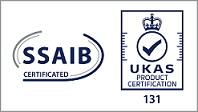
You may be aware that BT are in the process of upgrading the UK’s analogue telephone networks from copper to fibre, known as Next Generation Networks. Regrettably, traditional alarm-system Digital Communicators are not compatible with NGN’s as they use different technologies. Therefore, once your telephone exchange has been upgraded it is very unlikely that your Digital Communicator will be able to successfully transmit alarm signals to the Alarm Receiving Centre (ARC). Unfortunately, you are unlikely to be told when your exchange will be upgraded, or if it has been upgraded. The upgrade process started some years ago and is due for nationwide completion in 2025.
The most viable signalling solution above a Digital Communicator is CSL’s DigiAir Pro 4G. This is a single-path Grade 2/SP2 GPRS signalling device that communicates between an intruder alarm system and the ARC. It is similar to a regular Digital Communicator but instead of using your analogue telephone landline to transmit signals, the DigiAir Pro uses the 4G GPRS cellular network.
CSL’s patented roaming WorldSIM will lock on to the strongest network of Vodaphone, EE and O2. This means that if one network goes down your alarm system should still be able to communicate. The unit has a dormant back-up SIM that can take over signalling if the primary SIM fails.
The key points are:
- Uses the cellular 4G GPRS network so does not need a conventional telephone line
- Eliminates all call charges – no additional costs for signalling the ARC
- Unaffected by Next Generation Networks – no costly “runaway” signals
- Perfect for sites that have changed telephone provider and disconnected the telephone socket that the alarm is connected to
- Uses CSL’s WorldSIM for network resilience – locks onto the strongest network
- Has a dormant back-up SIM for added resilience in case the primary SIM fails
- Small footprint – fits inside most existing control panels
CSL, the company behind the DigiAir Pro 4G, is the leading alarm signalling provider in the UK.
Other Benefits:
If your alarm system is not currently sending “open and close” signals every time you unset and set it, as there are no call charges associated with the DigiAir Pro 4G it makes sense to add this free facility. Then, if you were unsure whether you set the alarm or need to check what time your cleaner arrived (and you aren’t at the property to check the alarm log) then you can call us and we can access the ARC logs for you. Also, unlike your 250 or 500 event log embedded in your alarm system, the ARC logs are never overwritten.
In addition to saving on call charges, if you had a dedicated landline for alarm signalling you can save money on line rental as you will no longer require that line.
Signs of Incompatibility:
Following an activation of your alarm or a signal sent to the ARC, if you notice on your telephone bill that a significant number of repeat calls were made to the ARC, that is a sign that your telephone line has been upgraded. This is because when the Digital Communicator sends a signal it expects to receive a reciprocal “handshake” signal back from the ARC. If one is not received the Digital Communicator may try and re-dial many times (called runaway signals). Another sign of incompatibility is if the signal is simply just not received. Unfortunately, some clients only become aware of the incompatibility at time of their annual service when the engineer is testing the system. To ensure your system continues to operate effectively it is prudent to upgrade to a DigiAir Pro 4G at the earliest opportunity, or to try and find out when your telephone exchange will be upgraded.
For higher risk premises, whether an insurance requirement or not, dual-path signalling systems are available which offer a much higher level of robustness and redundancy, using combinations of 4G+4G and 4G+IP. Please contact us if you feel your property now requires a higher level of protection.


